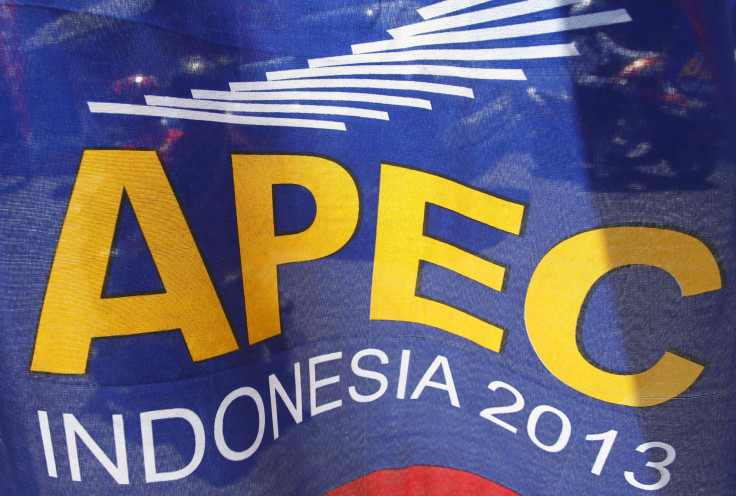Pacific Rim Negotiators Head To Bali For Talks On Free-Trade Across Pacific Amid Deep Disagreements

The United States and 11 other Pacific Rim nations will attempt to reach an agreement on trans-Pacific trade at the Asia-Pacific Economic Cooperation, or APEC, summit scheduled for Oct.7-8 in the Indonesian island of Bali, even as President Barack Obama decided to cancel plans to attend the meeting as a result of the ongoing political impasse back home and the federal government shutdown.
Talks to carve out the proposed Trans-Pacific Partnership, or TPP -- one of the most ambitious free-trade agreements currently being negotiated between the U.S., Australia, Canada, Singapore, Brunei, Chile, Malaysia, Mexico, New Zealand, Peru and Vietnam -- have been facing a stalemate as negotiators remain divided over issues such as currency-market manipulation, financial deregulation and protectionist policies in the countries involved.
In Obama's absence, Secretary of State John Kerry will lead the American delegation to the summit. The Obama administration has so far been reluctant to push for currency-market measures in TPP negotiations, but U.S. senators have been recently pushing the president to address currency manipulation, which, according to Sen. Debbie Stabenow, (D-Mich.) and Sen. Lindsey Graham, (R-S.C.) “may have a devastating impact on American companies and workers.”
However, Canada’s Trade Minister Ed Fast dismissed the issue on Sept. 27, after a series of meetings in Washington D.C., saying “a macroeconomic issue like currency issues should be dealt with outside a specific trade negotiation,” the Globe and Mail reported.
The Federal Reserve’s ultra-loose monetary policy is expected to limit bargaining options for the U.S. when it comes to currency-market manipulation, as the Fed announced in September its decision to continue its massive asset-purchase program, citing continuing weakness in the U.S. economy.
Several nations, including TPP negotiator Australia, expressed concerns over the impact of the Fed’s actions on their economies, after its decision to not reduce its stimulus program, popularly known as quantitative easing, or QE, caught financial markets off guard, and reignited the debate about nations deliberately lowering the value of their currencies to boost exports.
Yet another issue stalling negotiations is the status of tobacco products in the agreement. The Obama administration has proposed that tobacco will not be treated any differently from other products that come under the agreement, although the TPP will preserve the rights of governments to adopt anti-smoking regulations -- a proposal that drew criticism from the tobacco industry as well as health advocates.
The U.S. proposal on tobacco came amid criticism against U.S. tobacco companies for using existing trade and investment agreements to challenge tobacco-marketing restrictions in foreign nations. And, nations like Malaysia, where the legal tobacco market is dominated by local cigarette companies, do not want to lift trade restrictions on tobacco to avoid opening up its domestic market for potentially cheaper products.
Another roadblock in the TPP negotiations originate from Japan’s opposition to removing trade barriers for fear of undermining its agriculture industry, which is in a steep decline, especially in rice production.
“Each country has its own different views and there will be a way forward, even if it’s a struggle,” Hiroshi Imazu, a Japanese lawmaker who represents an agriculture-heavy constituency on the main northern island of Hokkaido, was quoted as saying by Bloomberg. “If our views are not accepted, we can withdraw.”
© Copyright IBTimes 2025. All rights reserved.






















